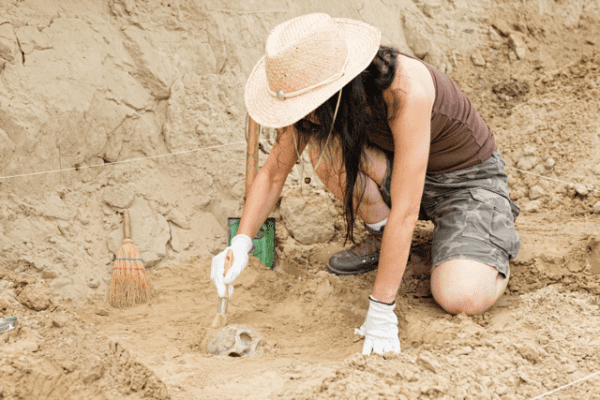
Pisa, Italy
Ancient Egyptian Astronomy, Archaeoastronomy and Magic
When:
06 July - 12 July 2026
Credits:
3 EC
Read more
Archeology
When:
19 July - 01 August 2017
School:
Digital Technologies in Cultural Heritage & Tourism
Institution:
UAegean
City:
Country:
Language:
English
Credits:
5 EC
Fee:
900 EUR

Theoretical background and hands on the portable instrumentation in fieldwork, use and learning of specialized softwares. Intensive course allowing proper time out to relax, get inspired from lovely Delphi environs, combine learning experience with participatation in local life
Prof. Ioannis Liritzis -Lab of Archaeometry, Dept of Mediterranean Studies- University of the Aegean Email:liritzis@rhodes.aegean.gr Info: www.liritzis.gr Scientific Responsible of archaeological excavations Co-PI: Dr. Athanasios Sideris
PhD candidates, graduates, undergraduates
Archaeology graduates or undergraduates
Cultural Heritage researchers
Archaeometrists, archaeological scientists
Civil servants from the public or private sector involved with heritage
Scientists in cultural issues, cultural management, dissemination & documentation
Museologists
Graduates in cultural studies, museology,
Survey archaeologists
Engineers in documenting cultural tourism, sustainable development from cultural heritage and museums
Virtual museum learners
Freelancers
Familiarization of participants with the archaeological surveys, archaeological dig, documentation, processing of excavated finds, preventive conservation issues, hands on archaeometric non-destructive analysis in situ, writing excavation reports and keeping diaries. All tutoring shall be given having in mind the level for beginners in the field.
Introduction to the current state-of-the-art of modern archaeological excavations and trends (cyberarchaeology, Archaeometry, Excavation techniques, the archaeology of the area)
12 days excavation, measurements, lab processing of finds
1 day museum and sanctuary of Delphi guiding and educational touring in adjacent areas around Delphi and Corinthian Gulf
Particular emphasis will be given to practical professional experience. Students will have a great experience and form strong bonds with their peers on a field program. For this reason our Programme offers something more than a great academic course; including special opportunities and experiences in situ and in storage lab.
And more experiences….try the local traditional delicious cook, mix with local people and swim in the blue Corinthian Gulf waters .….
The Students will participate in all aspects of the archaeological fieldwork under the supervision of a staff of field archaeologists and technical experts, all of whom have extensive field experience and advanced academic training in classical and Mycenaean archaeology.
Students and Volunteers (who submit the tuition fee) will be trained in the basic techniques of excavation: working with pick, trowel, shovel, and wheelbarrow; cleaning and investigating stratigraphy; delicate cleaning of artifacts in the ground; sifting of excavated earth and techniques of flotation; washing and basic conservation of pottery and other objects; hands on portable spectroscopy instruments for archaeometric analysis, geophysical prospection, drones and image processing, principles of preventive conservation, and clerical work involved in the keeping of excavation records.
Tasks will be assigned in rotation, and participants are expected to get involved in all of them. Room and full board are taken care in local village family rooms and tavernas. Travel arrangements to and from Greece are the responsibility of each participant though detailed info is provided how to reach the site.
Fee
900 EUR, Fees: 900 Euros for 12 days all inclusive – tuition, accommodation, bus from Athens to the site and back, museum entries, local travel, basic stationery & tee-shirts (your travel from abroad to the site is excluded). Payment: The 150 Euros is deposited in the University of the Aegean via the online pay system with registration and the rest (750 Euros) are paid by yourself for fieldwork and tuition expenses in situ (via credit cards withdrawal).
When:
19 July - 01 August 2017
School:
Digital Technologies in Cultural Heritage & Tourism
Institution:
UAegean
Language:
English
Credits:
5 EC

Pisa, Italy
When:
06 July - 12 July 2026
Credits:
3 EC
Read more

Padua, Italy
When:
29 June - 10 July 2026
Credits:
6 EC
Read more

Pisa, Italy
When:
15 June - 27 June 2026
Credits:
3 EC
Read more